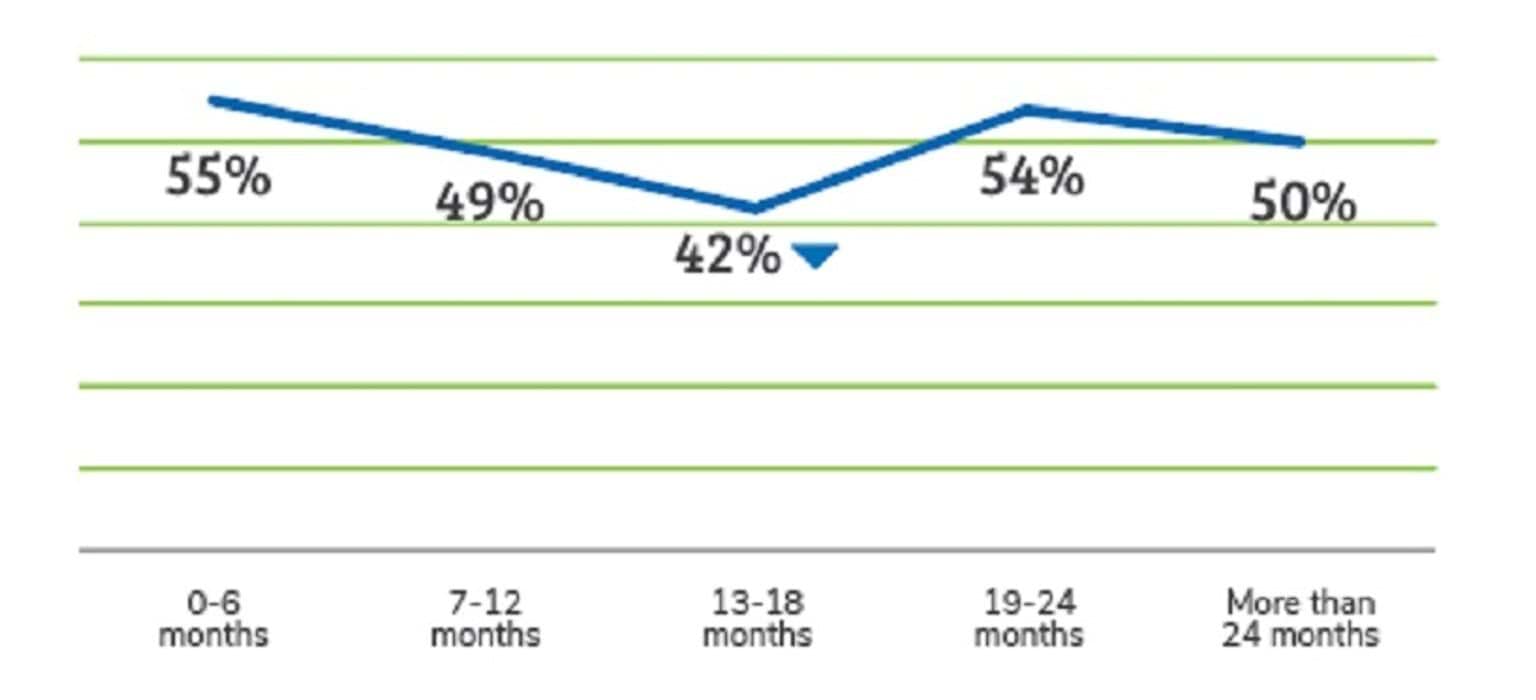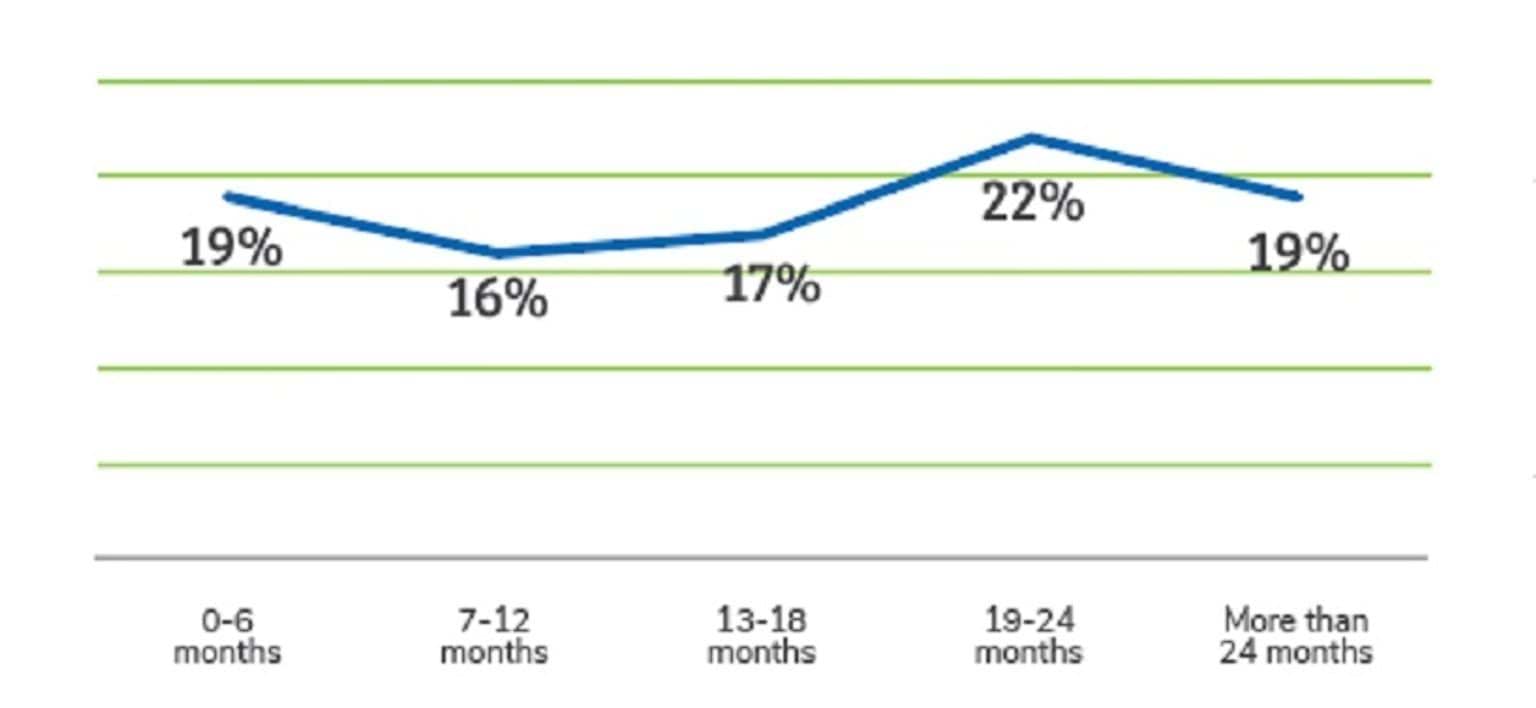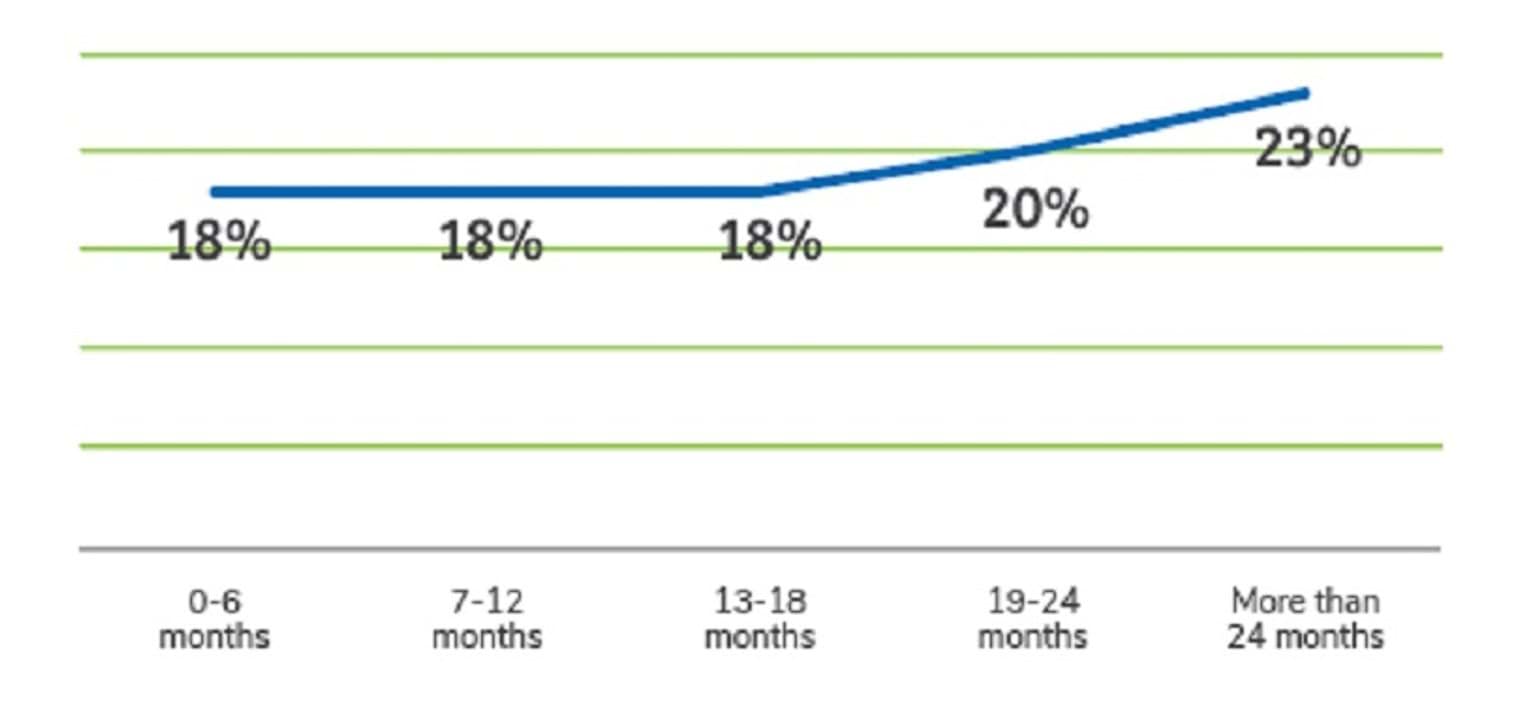Overall
The research identified very little change to the experiences of the disability workforce between 2018 and 2019, and all the key findings identified in 2018 continue to be relevant. Workers continue to be passionate about their clients and their work, there is general support for the NDIS’s mission and an understanding that the NDIS has the potential to increase innovation and create new opportunities for workers. However, workers are continuing to experience anxiety and uncertainty about the NDIS. Many workers see the NDIS as reducing time and funding for the things that matter and are concerned about the impact of the NDIS on security, quality and safety for them and their clients.
Feelings of isolation among the workforce emerged as a key theme in 2019, with the move to billable hours seen as reducing time for collaboration and learning.
"A lack of ability to mentor and collaborate... makes you feel much more isolated and doesn’t allow you to develop the professional skills. [It is] harder in the country, you can’t get together in a meeting and share ideas, the collaboration and camaraderie has gone."
The research identified a lack of knowledge about career pathways and an appetite for further information and clarity about the scheme, including direct communication about the NDIS, ideally delivered face-to-face by credible colleagues in their practice area.
Notably, it was found that the NDIS is experienced differently by different types of workers across the sector, and those at differing stages in the rollout.
Key findings regarding how people are feeling about their work as the NDIS rolls out are detailed overleaf. These findings are followed by two spotlight sections on communication and career progression, which were topics explored in-depth in 2019.
How are people feeling about their work as the NDIS rolls out?
In the qualitative research, study participants talked about how they felt about their work at the moment. Some felt hopeful or happy about their work, while others felt overwhelmed, disempowered or confused.
Some opportunity and positivity
Some workers relished the new opportunities presented by the NDIS to support participants in innovative ways or specialise in different areas and enjoyed their exposure to a broader range of clients.
"Yes, there is definitely personal satisfaction in seeing it (the NDIS) work for some families, we’re working out how to regain some of the evidence based best practice and knowing that we’re making a real impact. I’m always up for a challenge."
Workers are still feeling uncertain about the impact of the NDIS
Despite the NDIS being rolled out in all regions in 2019, many workers were still uncertain about how it would affect their jobs and what their responsibilities would be under the new scheme. For many it was still too soon to comment on the broader impact of the NDIS on the workforce. The following analogy was used:
"The NDIS is like flying in an aeroplane while it is still being built around us."
Devalued and disempowered
A recurring theme for 2019 was that many workers feel devalued and excluded from information about the NDIS and the planning process for their clients. This was often attributed to losing their roles as advocates for clients or participants in care planning, with many lacking access to their participants’ NDIS plans or goals, which they report is essential to delivering person-centred services under the NDIS.
This was particularly the case for direct support workers, with those in more specialised fields such as Allied Health often feeling more supported and able to negotiate with participants to ensure goals were shared.
Some workers felt that they are losing quality time with their clients because of billable hours, or because the work they find most enjoyable, such as community access work, is being delivered by different services or workers.
"Now with the rollout of the NDIS there are NDIS coordinators who work with the families to make sure that they get the right funding, but the National Disability Insurance Agency (NDIA) assigns coordinators and it can be difficult to get one who knows what’s right for the clients. They don’t give the staff a chance to be able to prove to them that we know what the resident needs, they paralyse you, don’t give you the time or the chance to prove your skills."
Concerned about clients
For some of those who had rolled into the NDIS by the second wave of research many of their fears were confirmed, such as having less time to support their clients, experiencing changes in work hours and witnessing clients missing out.
The sector’s difficulties in retaining experienced workers under the NDIS, coupled with growing demand, meant that many workers had witnessed their employer increasingly hiring less experienced staff to meet demand. There was considerable concern about the impact of this on client wellbeing and worker morale.
"There are not enough disability workers to work with clients so they seem to be taking less experienced workers, which is not good for the workers and for the clients."
"There are lots of people coming into the NDIS as a career change but they’re not coming with any qualifications. Experience makes a difference. When I work with people with a diploma or degree I see that in their practice. It reflects the rigour of their qualifications [and] makes a difference to the work they do."
Does length of time since rollout have an impact on how the workforce feels?
The NDIS rolled out in different regions of Victoria between 2013 and 2019. This means it is possible to use our research to understand how the workforce’s experience differs by how long they have spent under the NDIS.
Overall, the study found workforce sentiment decreases with increased exposure to the NDIS, hitting its lowest point at 13-18 months following rollout. Positively, sentiment increases significantly following this milestone, but then declines for those who have been working under the NDIS for 24 months or more.
Advice from sector experts suggests this may be due to the two-year plan review taking place at this point for participants, or because those who worked in early rollout regions have experienced more teething issues with the scheme.
See below for key findings on length of time since rollout versus workforce sentiment.
Key tension point: 13-18 months from rollout
When looking at current work sentiment over time, a decrease in sentiment can be seen for those 13-18 months into their rollout. It is possible that the decrease in sentiment may relate to this group encountering more early issues with the scheme rather than the length of time since rollout.
Positivity about the future of work improves as the NDIS is rolled out for longer
Across the workforce, optimism about the future was low. However, positivity does seem to increase gradually with exposure to the NDIS.
Agreement that the NDIS is positive change for me in my work most likely at 19-24 months post rollout
There was also limited agreement that the NDIS is a positive change for workers. This follows a similar pattern to overall workforce sentiment, increasing by the 19-24 month mark, and then decreasing for those who had been working under the NDIS for more than 24 months.
This analysis indicates an opportunity to work differently across the workforce to retain clarity for workers in the recent to moderate stage of rollout by providing a clear vision and information. This may lessen the heightened anxiety experienced at 13 to 18 months post rollout. Overall, there is an appetite for clarity and transparency around NDIS processes and opportunities with use of simpler instructional language.
The analysis also indicates that a different approach should be utilised for those 19 to 24 months out from rollout who are increasing in positivity and perhaps getting accustomed to the new system. This stage could be the key time to start introducing new training and retention interventions when both workers and employers are feeling more stable.
The analysis also shows that while subtle, there seems to be a trend towards improvement in the perception that the NDIS is a positive change for the workforce as the NDIS rolls-out. However, further support may be required to maintain this improvement following the 24-month mark.
Updated


